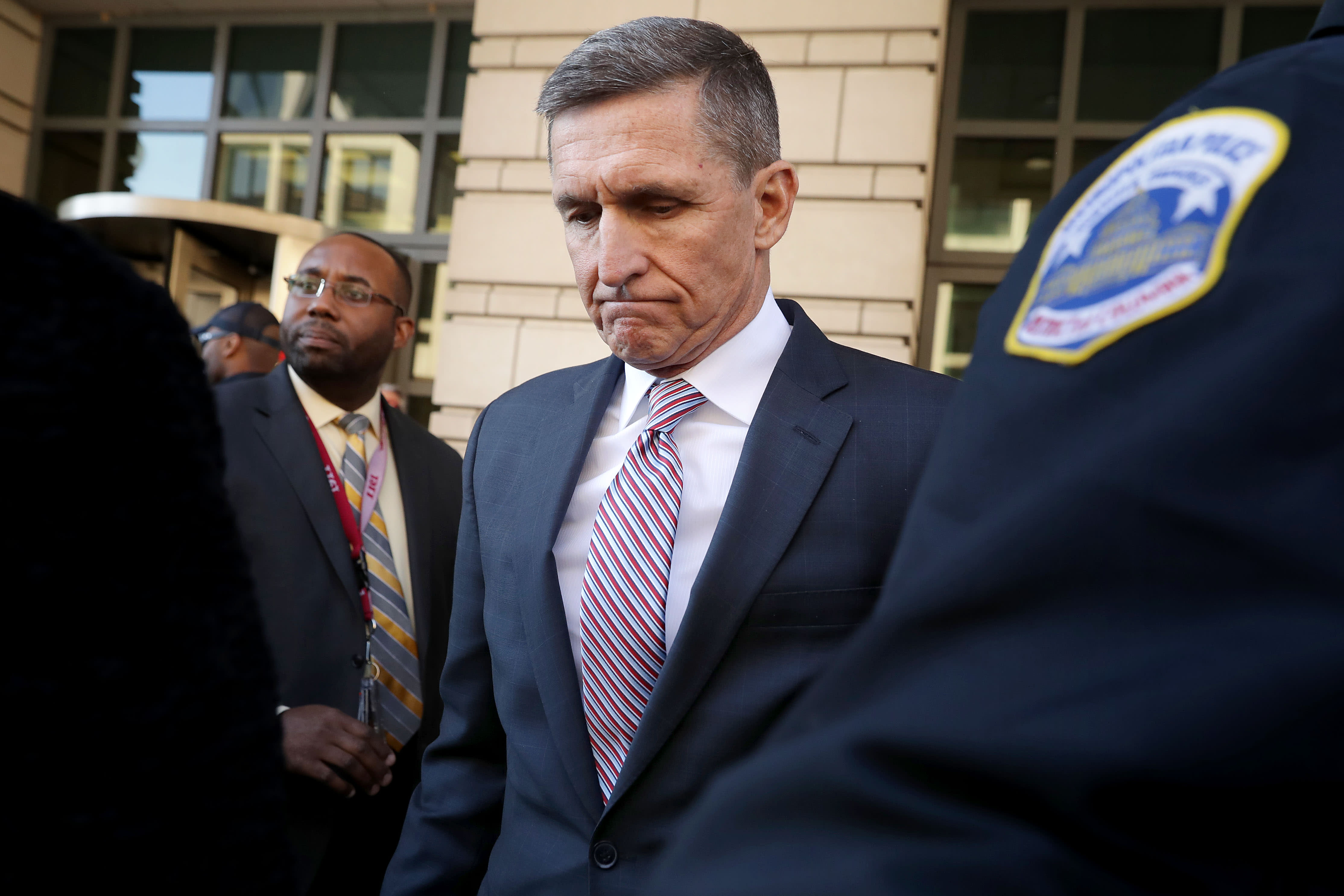Former White House National Security Advisor Michael Flynn leaves the Prettyman Federal Courthouse following a sentencing hearing in U.S. District Court December 18, 2018 in Washington, DC.
Chip Somodevilla | Getty Images
Transcripts of calls between former national security advisor Michael Flynn and Russia’s then-ambassador to the United States weeks before President Donald Trump’s inauguration were publicly released Friday.
Flynn, a retired Army lieutenant general, pleaded guilty in December 2017 to lying to the FBI about his conversations with the Russian ambassador to the U.S. at the time, Sergey Kislyak.
Earlier this month, the Department of Justice moved to drop its case against Flynn.
Trump’s new director of national intelligence, John Ratcliffe, released the transcripts to Congress on Friday after lawmakers of both parties requested them.
Flynn has repeatedly admitted in court that he had falsely told FBI agents in January 2017 that he did not ask Kislyak to refrain from escalating the Obama administration’s sanctions against Russia.
The transcript of a Dec. 29, 2016, call shows Flynn advising Kislyak that Russia should only respond in a proportional manner to any actions the Obama administration takes against the country before Trump is inaugurated.
The Obama administration announced sanctions against Russia that day in response to the country’s efforts to interfere in the 2016 presidential election.
“What I would ask Russia to do is to not -is – is -if anything – because I know you have to have some sort of action – to, to only make it reciprocal,” Flynn had told Kislyak. “Make it reciprocal. Don’t -don’t make it-don’t go any further than you have to. Because I don’t want us to get into something that has to escalate, on a, you know, on a tit for tat.”
Flynn was asked to resign by Trump after less than a month on the job because he had misled Vice President Mike Pence about what was said in the conversation with the Russian ambassador.
After nearly being sentenced in 2018, Flynn replaced his legal team and asked U.S. District Court Judge Emmet Sullivan to dismiss his charge. The Justice Department said this month that it, too, wants the case dropped, after finding that the FBI did not have grounds to conduct a counterintelligence investigation of Flynn at the time agents interviewed him.
Sullivan has, for now, refused to grant the Justice Department’s motion to dismiss its prosecution of Flynn.
Instead, Sullivan has asked a retired federal judge, John Gleeson, to make legal arguments on why the case should not be dismissed, and to address whether Sullivan should hold Flynn in criminal contempt for pleading guilty to lying to FBI agents when he now argues he did not lie.
Sullivan has also allowed third parties to file arguments on why he should, or should not, dismiss the case.
Flynn’s lawyers have asked a federal appeals court to bar Sullivan from allowing outside comments on the case in court filings, and to direct the judge to dismiss the case.
Ratcliffe’s immediate predecessor in the intelligence post, Richard Grenell, this week said that he had declassified records of Flynn’s calls.
Grenell drew criticism earlier this month, when he gave the Justice Department a list of Obama administration officials who had requested that Flynn be “unmasked” in intelligence surveillance. One of the names on that list was former Vice President Joe Biden, the apparent Democratic nominee in the 2020 presidential election.
NBC News and other outlets later reported that Flynn’s name was never actually redacted from an FBI intelligence report about his phone conversation Kislyak.

